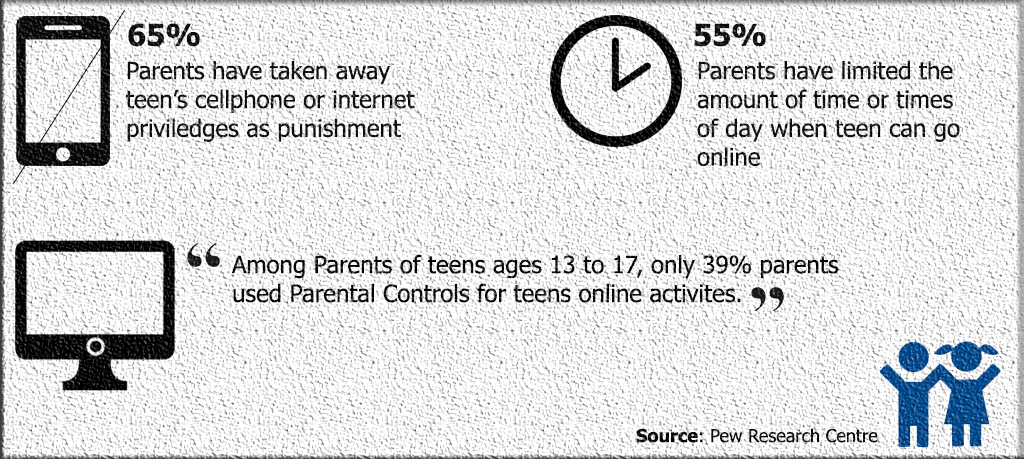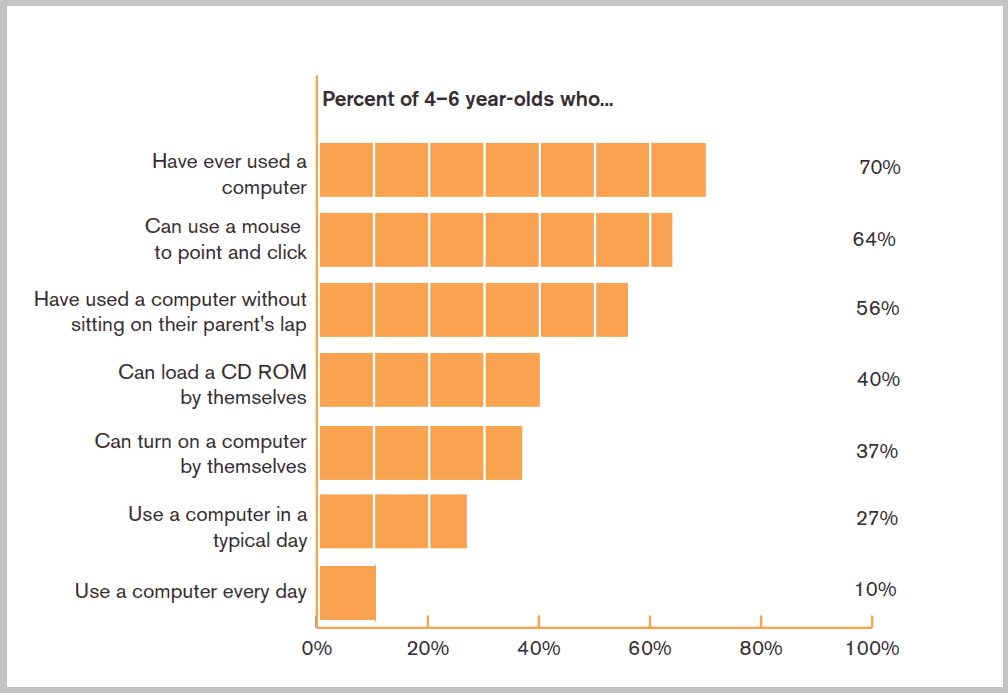10 Digital Skills We Must Teach Our Children
Kids today spend more time on screen than ever before. The widespread use of gadgets has embedded in the lives of the youngest members of our society. Digital Intelligence is everywhere.
Gone are the good old days when growing up was memory revolving around bike rides, sports, and many other outdoor games. Gone are the days, when dining used to be fun with the interaction between family and kids.
But, today’s children are trickled down by Digital Media. They are so engrossed in the soft glow of their gadgets that they lack the real essence of life.
It is no longer a surprise that technology has replaced most outdoor games. Even pre-school kids know how to use gadgets moderately before they can even tie their shoes!
Experts are concerned about this rapid increase of technology on a toddlers’ developing brain.
According to Pew Research Center, approx. 70 percent of 11-12 years old use smartphones and this increases to almost 90 percent by the age of 14-15.
This considerable time on screen can affect children’s literacy and language in both positive and negative ways. Technology is changing the way of living of the emerging sprouts of our society. Addiction to games and gadgets is spoiling the moral values of kids as well as their thinking capacity.
So, how does Digital Intelligence impact our social and economic life?
The social and economic implication of technology is extensive and hastening. As the volume of information is increasing in a rapid manner, Experts are forecasting that 90% of the global population will be linked to the web within 10-15 years of time. These changes proclaim exciting possibilities. But, there is also uncertainty since our toddlers will be the epicenter of this dynamic change.
The Impact of Technology on the Growing Child
A 2016 study done at Kaiser Foundation talked about, “the involvement of technology in a child’s growth. How technology impacts the immersion of a child from a few months to a few years of age. Even though there is no concrete evidence on the impact of Media Exposure on children, it is an issue that demands immediate attention from health professionals, researchers, educators, and parents alike…”
The electronic media is a vast expanse of knowledge and entertainment. But, in this fast-paced world, our children are on the edge of many risks like cyber-bullying, scams, obscene and violent content, unethical practices, and the addiction to technology. Children are directly exposed to these problems ever after the existence of child protection and Internet governance. Take a look at this piece of news from 2014, about a child who attacked and allegedly killed his grandmother because she interrupted his online game. (Source)
Of course, there is a difference in the internet usage pattern among children and adults, and children are more prone to face hitches due to this gap. Being an adult, it is our responsibility to make our child aware of right or wrong of the digital world, so that our kids won’t lose their path in this era.
So, how can we prepare our kids for the Digital Age?
Digital Intelligence is the key!
Digital Intelligence is the sum of communal, emotional, and intellectual abilities crucial for digital life. It mainly has the essential skills, knowledge, and ability to get accustomed to one’s emotions and behavior to deal with the confronts and demands of the digital age.
These abilities must be engrained in human values of veracity, empathy, respect, and prudence. These values empower the responsible, and wise use of technology – a trait, which will empower the leaders of tomorrow.
Here are the key elements of Digital Intelligence, which should be imparted to our children to make them better prepared for the time to come.
1. Digital identity: This is the ability to understand, create and manage an individual’s online presence and reputation, which includes the knowledge and skills to build and maintain a healthy consistent online and offline identity with self-efficiency.
2. Digital literacy: This is the ability to evaluate information, contacts, and valuable content on the web as well as capability in computational thinking. It also includes the understandability of the damaging effect of false information and the kind of perils associated with strangers online.
3. Digital rights: This is the ability to understand and sustain personal information shared online and to make individuals aware of legal rights, having the rights to privacy, academic property, protection from abhorrence speech and freedom of speech.
4. Digital emotional intelligence: This is the ability to be compassionate and establish good relationships with others online. It includes the willingness to offer one’s voice to someone who needs help, honest communication with parents, teachers, and friends about one’s online presence, and not being judgmental in the online space.
5. Digital communication: This is the ability to communicate and collaborate with others using digital technology and media and make aware of the determined nature of digital footprints (traces that people leave online) and their real consequences.
6. Digital use: This is the ability to use digital media and mastering devices in order to make individuals aware of Digital Media.
7. Digital safety: This is the ability to manage online risks like cyber-bullying, radicalization, grooming, violence, and obscenity. It includes the discipline to use digital media safely, detect the problem areas and handle them maturely.
8. Digital security: This is the ability to spot cyber threats such as hacking, malware, and scams and handle them wisely, and also to seek elders’ help if the situation goes out of hand.
9. Digital time management: Restricting time for digital use is crucial to maintain a balanced life. Therefore, Digital Time Management is the ability to balance between virtual and physical realities, which further prevent the disease of Digital addiction.
10. Digital privacy: This is the ability to secure online information such as passwords for social profiles and protecting them from cyber hackers.
Above all, these skills and values should be deep-rooted in our future generation, which will build our future leaders.
Certainly, it is high time for us to come together as parents and teachers to prepare our kids for the future since Every child is a Digital Leader!
Our children are the first generation to face this hyper-connected world. It is essential for us to make them aware of their digital rights and cultivate digital intelligence in them to prepare our next generation leaders.
So, what do you think?
How much time should the average teenager spend on social networking sites?
If you are a parent then, Share your parenting tips on how do you develop your child’s Digital Skills. We’d love to hear them in the comment section.
And, If I have missed anything important to include above, feel free to comment down below!




